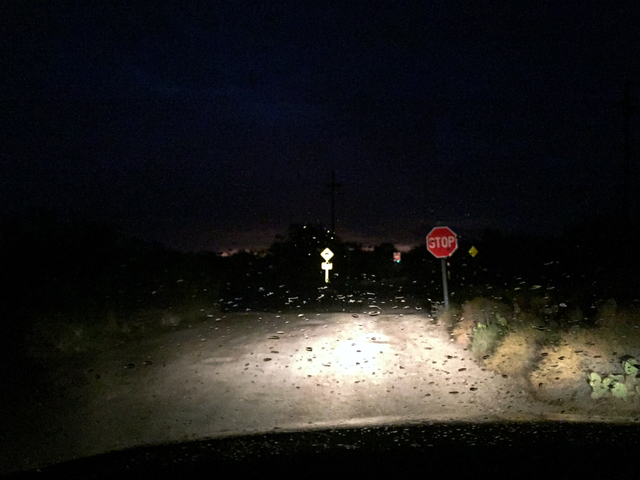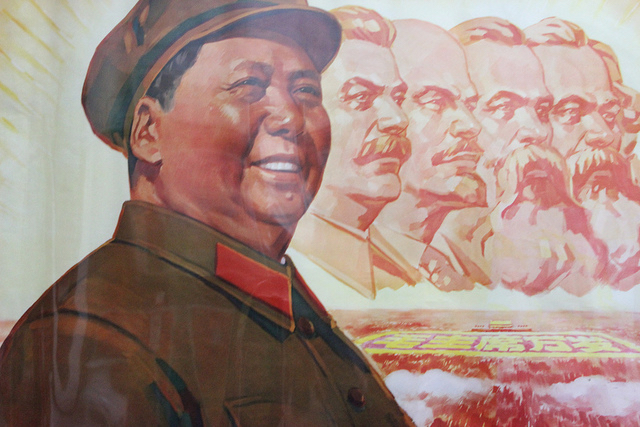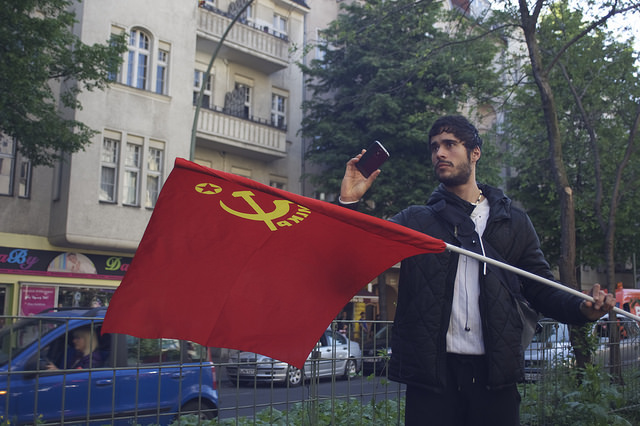How do people cope with the sheer amount of information that bombards them every day? So much of the world seems to be in grave peril. Many are depressed to the point of paralysis. How, then, can we still “speak for hope, as long as it doesn’t mean suppressing the nature of the danger? Social media provide some important clues.
That quote is from Raymond Williams, one of postwar Europe’s most important leftist thinkers. Unlike so many modern radicals, he was a product of the working class and therefore intimately acquainted with the pressures that make it hard for those who most need a new social order to contribute towards its construction. When you’re living paycheck to paycheck — or don’t even have the legal status necessary to get paid in anything but cash — the long dream of revolution has a way of being displaced by the short dream of a little rest and relaxation.
But this knowledge did not lead Williams to despair. In his 1958 essay “Culture Is Ordinary,” he writes about growing up in the impoverished coal-mining country of Wales, where he heard his grandfather, a laborer, weep while telling the tale of being turned out of his home and his father, a railway worker and trade-unionist, dispassionately comment on a political landscape in which most people work so that a few do not have to. Given the cold, hard facts of this life, it would have been easy for Williams to be pessimistic and resentful.
The way he avoided this fate, while never losing sight of how badly the status quo fell short of his desires, was to remember that how we see the world depends on what direction we look. “To grow up in that country was to see the shape of a culture, and its modes of change. I could stand on the mountains and look north to the farms and the cathedral, or south to the smoke and the flare of the blast furnace making a second sunset.”
By remembering that he had this choice of perspective, Williams was able to preserve, as he noted in a 1987 conversation with Terry Eagleton — also quoted at the beginning of this piece — the distinction between disappointment and disillusionment. He didn’t succumb to the latter or the despair to which it usually leads, because he made it a point of looking both north and south, acknowledging how much had to be done to improve the lot of working-class people like his father and grandfather while simultaneously deriving comfort from “the infinite resilience, even deviousness, with which people have managed to persist in profoundly unfavorable conditions.”
These days, billions of people still live in those conditions. And a sizable percentage of those who could once count on living out their days in better circumstances are at risk of falling into the global proletariat. This precarity has a powerful psychological impact, not only on those whose day-to-day struggles testify to the difficulty of escaping poverty, but also those who, while objectively more privileged, can never fully shake the feeling that their own future is becoming increasingly insecure. Progressives are especially prone to this latter conviction, both because they frequently hail from what’s left of the middle class — again, because their upbringing was stable enough to give them time to cultivate longer dreams — and because a disproportionately large number of them work in those professions most likely to be in the crosshairs of the austerity-bent “one percent” and its allies: teaching, government and the semi-private sector of NGOs.
As someone who both falls into that category himself and knows a lot of other people who do, I’ve been thinking recently about how Raymond Williams’ ability to “speak for hope” might translate to an era in which more and more of existence takes place in a virtual realm. It may be hard to take our minds off the equivalent of his “second sunset”, encompassing all the ways in which not just particular societies but the planet Earth itself seem to be approaching a point of no return. Yet if we are to find the strength to struggle against that depressing fate, we will have to remind ourselves to “look north” for pleasures to sustain us.
A lot of negative things have been written over the past two decades about how the internet encourages people to waste time on vain or silly pursuits. Such critiques are understandable, particularly coming from those who aspire to do serious work to improve society. What I’d like to suggest, though, is that it’s time to reconsider the purpose of the things we do online when we aren’t doing what is supposed to matter. If all we manage to achieve is averting our gaze from disturbing portents, then “time-wasting” is hard to justify. But if we can fix our attention on what truly makes us happy, if only for a little while, this doubling of our vision might serve as an equivalent to the balance Williams strikes by looking both south and north, what Antonio Gramsci described as a pessimism of the intellect and optimism of the will.
To be sure, some will object that my argument merely rationalizes weakness, a failure to commit fully to the task of fighting for justice. It’s why progressives are upbraided for everything from having children to celebrating art for its own sake. Only from a position of privilege, they are told, is it possible to imagine that such self-indulgent behavior might serve a serious political end. This is the sort of logic deployed by the proponents of Socialist Realism, which reached its apotheosis during the Cultural Revolution in China. And it does seem logical, if you conceive of human beings as time-wasters who must be compelled to be productive. However, once you accept that they can only be productive if they are given the opportunity to “waste” time — a truth demonstrated over and over both within the educational system and the workplace alike — the question of privilege must be framed differently.
It is also important to recognize that privilege is not what it used to be. Historically, progressive intellectuals — using the term “intellectual” in the broadest possible sense — have tended to misrecognize their own socio-economic position out of a desire, mostly well-meaning, to feel closer to the working class than they actually are. This has made actual members of the working class wary of being led astray by a vanguard that doesn’t necessarily prioritize their short-term best interest. Today, however, the opposite problem is becoming increasingly common. Because they have grown up with a measure of privilege that they were repeatedly urged to check, progressive intellectuals often overestimate their own standing relative to the have-nots of society. Although they have resources at their disposal that the traditional working class typically did not, the majority of them are in peril of falling into conditions where they, too, will live from paycheck to paycheck, so exhausted and anxious that they succumb to the myopia of necessity.
Although this trend can be traced back to the rise of Thatcherism and Reaganism in the late 1970s, it was not until the end of the Cold War that its effects became fully manifest. At first, the artificially contrived budget shortfalls of conservative governments ideologically bound to cut taxes led to consolidation in the public sector, with fewer new positions open to recent graduates. But then, after years of seemingly permanent crisis, already established positions started to be cut in large numbers. Certainly, this is what has been happening throughout the European Union’s “South”, with Greece at the leading edge. Yet we also see it in countries that are objectively much better off, such as the United Kingdom and the United States.
In the face of such a relentless assault on their very livelihoods, progressive intellectuals cling to the belief in their own privilege as if it could ward off their increasing marginalization within the neo-liberal order. Yes, they might still be fairly privileged relative to what’s left of the working class. But most of them are far closer to that socio-economic status than the one held by the small number of wealthy individuals who dominate global affairs. The gap across which leftist solidarity used to teeter precariously has closed to the point where, if progressive intellectuals only took a long, hard look in the mirror, they would see that there is no longer much need for them to reach out. Instead, they should be asking themselves why they are so invested in resisting a self-identification that is in their own best interest.
I’ve been asking myself that question for some time now, as I ponder the debt I took on so that I might seem a lot more secure than I am. Most of the purchases I made to that end have long since lost their luster. And I am finding, more and more, that what sustains me most in a period of seemingly endless exhaustion and stress are experiences I don’t have to pay for and the act of sharing them with others. I also get a boost from the experiences that my friends share with me. To be sure, a certain amount of money is required to be able to participate in social media. Smart phones aren’t cheap, even when you lease them. Nor is internet access, unless you are lucky enough to have it for free at work or school. But these expenditures still pale before the sort of investment required to live a truly bourgeois lifestyle, from clothes to cars to the place one chooses to live.
Throughout this piece, I’ve been interspersing photographs from my latest effort to replenish my own spirits and, I hope, help other people I know feel a little better as well. As often as possible, during our Monsoon season here in the Arizona desert, I try to document the amazing skies with which we are blessed. The results can’t come close to capturing the splendor that takes my breath away almost every evening. But the small effort I make to record and share my experience guarantees that I will be more mindful of the beauty in front of me, whether I see it from the highway, a parking lot, or a suburban lot. And my desire to make that sharing a little more special has led me to restructure my busy day so that I take time, when I’m able, to find a better vantage point for my few minutes of “looking north.”
It’s not enough to blot out the bad news for long. Soon enough my news and social media feeds will offer up more reasons to be outraged and depressed. The trends that have been destroying almost everything I aspired to be a part of when I was growing up show no signs of reversing course. Even social and political achievements I took for granted are in grave danger of being erased. Yet I am able to confront this bleak reality with a little more energy because I have let myself “waste” time in the pursuit of beauty and my efforts to share it with others. From what I can tell, a lot of my fellow progressives are doing something similar. We just need to feel better about trying to feel better.
All photographs courtesy of the author.











